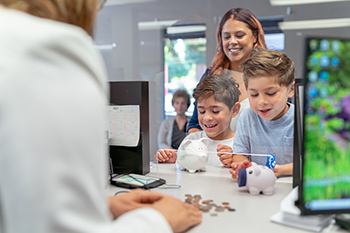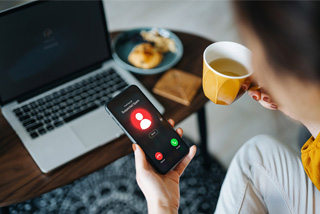
5 tips for parents opening a bank account for kids

Student loan scams and other common student scams to be aware of

Forgetting PINs happens more often than you might think. Here are some pointers for creating and remembering an effective PIN.
If you can’t remember your Personal Identification Number (PIN), accessing your bank account can be difficult and cause unnecessary inconveniences in daily life. Fearing hackers or identity thieves, people often make PINs more complicated than necessary. Avoid the hassle with these eight tricks and tips.
1. Avoid the obvious
Make your PIN less easy to guess by avoiding obvious number combinations or sequences such as “1111,” “1234” or “9876.”
2. Use the word method
Some people find it helpful if they think of their PIN number as a word. View it as if you were dialing it on a landline phone, with each number from 2 to 9 representing three or four letters. The word “ball,” for example, would be “2255.” For many people, it’s easier to remember “ball,” which leads to recalling the numbers associated with it. If you use this method, it’s best to use as uncommon a word as possible so that it is unlikely to be guessed by someone else.
3. Try a familiar date
A memorable date, such as a birthday or anniversary, can make a handy PIN. If a loved one was born Sept. 3, 1986, “9386” is a relatively easy PIN for you to remember while remaining obscure to fraudsters. The only potential downfall to this method is that the date you choose may be predictable for people who know you well or have access to your personal information.
4. Use a meaningful address
A house number can be a good choice, especially if it’s an address you won’t forget but others are unlikely to know. Your best bet: use the four-digit street address of a childhood friend, a former workplace or another significant place. Numbers with personal significance are easy to remember and hard to guess. Note: Avoid using your own address since thieves could access this information.
5. Try an extra-long PIN
If your bank allows it, you can also create a more elaborate, lengthy number. An 8- or 12-digit PIN is more secure than a traditional 4-digit number, but it’s also harder to remember, unless it is already in your memory. Do you still remember the phone number to your childhood home? Maybe you do but would-be thieves probably don’t.
6. Fake a friend
If you simply can’t remember your PIN without writing it down, you can hide it in the name or number of a contact within your phone. Make sure your phone is password-protected and remember to call your bank immediately to reset your PIN if your phone gets lost or stolen.
7. Don’t write it down
It’s better to forget your PIN than to write it down. If you need to have it written down in order to remember it, you’re going to have to bring it with you. That makes others nearby as likely to see it as you are.
8. Use different secure PIN numbers for different accounts
Having different secure PIN numbers for each of your important accounts reduces risk so they can’t all be immediately accessed if one secure PIN is compromised. However, you still need to be able to remember them all.
If you forget your PIN, immediately get in touch with a bank representative, either on the phone or by stopping into a branch. Never email your PIN to anyone. If you suspect your card or PIN has been lost or stolen or your account has been otherwise compromised, call your bank immediately.
Protecting your personal information is important. Learn more about identity protection.


